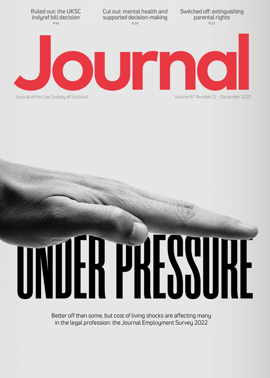Are companies’ creditors taking a softer line?
Cultural, economic and political forces have aligned to strengthen companies’ hands when negotiating with landlords, tax authorities and lenders compared to the more stringent approach taken in the 2008 financial crisis.
All sorts of problems are piling up for firms, including high energy costs, inflation, staff retention, trade barriers and international political uncertainty. Yet there have been fewer insolvencies over the past three years than in any period since records began.
Reasons to hold off
As COVID-19 hit, governments around the world supported companies in unprecedented ways. Companies that would have otherwise gone out of business survived, and still do. There is no political appetite for the unemployment that mass insolvencies would cause, and this is affecting how banks and tax authorities in the UK and elsewhere are treating businesses in distress.
The UK Government, for example, is keen that HM Revenue & Customs supports businesses and protects them where possible. This is significant because HMRC is usually one of the biggest creditors in an insolvency, and its attitude plays a large part in an insolvency’s outcome.
Banks are usually one of the other biggest creditors in a distress situation, and they face reputational consequences if they are seen to force businesses to close and workers to lose their jobs.
The third major creditor in many cases is a landlord. Though they do not face the same reputational or political pressure, their position has undoubtedly been affected by COVID and the fact that new businesses are not queueing up for city centre commercial property in a work-from-home era.
Towards a US culture
This means that tenants seeking to put themselves on a surer financial footing have more leverage than in previous downturns with common main creditors. We are seeing this have an effect as more distress situations are worked out as restructurings with the business continuing to trade, than as insolvencies where a company closes and its assets are redistributed to creditors.
The UK Government is introducing policies to support this cultural shift. Its new debtor in possession process, along with the Corporate Insolvency and Governance Act 2020, are seen in the market as “assisting in the rescue of companies as going concerns”, according to a report by the Insolvency Service.
These measures bring the UK a little closer to the US, which has always supported companies more strongly through distress. It is not unusual there to find businesspeople with insolvencies in their past without suffering the stigma that persists in the UK and Europe.
The UK Government is looking to restructuring professionals to examine every opportunity to keep businesses trading through difficulty.
Struggling for longer?
But these processes involve someone somewhere taking a loss, and that is most likely to be banks, HMRC and landlords, so these processes depend on the recent cultural shift persisting.
Government support during COVID lockdowns has had a major effect on the viability of companies, keeping in business many that in other times would have ceased to trade. Insolvencies have been at their lowest level since records began, and this means that there are companies still in business that otherwise would not be.
This could result in a glut of restructurings and insolvencies in the coming months and years as a backlog of struggling companies emerges. A sudden spike in inflation will not help companies that, even without COVID, would have struggled to trade their way through 5-6% interest rates.
So, while a more forgiving environment will keep good businesses going, it could also mean that the life of these companies is extended further than would otherwise be the case. That could have an impact on productivity, as capital and staff are tied up in less profitable or productive businesses.
Trading challenges
Even normally-viable companies have challenges to face. Retail and leisure companies are hardest hit by spiralling energy costs and dramatic changes to the geography of demand. City centre premises dependent on a Monday to Friday trade now find themselves relegated to a Tuesday to Thursday trading week. This has an impact on employees as well as owners.
People are relocating their gym activity to where they live rather than where they work, while pubs and restaurants in city centres are closing on some days during the week in the face of sharply reduced demand.
Even in these changed times, not all of those companies will survive, but more avenues are in place and in a better environment than ever to keep the good businesses trading.
Perspectives
Features
Briefings
- Criminal court: Farewell retrospective
- Agriculture: A future support framework
- Corporate: Is there a creditor duty?
- Intellectual property: "Reclaiming the UK statute book"
- Sport: Flouting their own rules?
- Succession: Crofting tenancy transfers in intestacy
- Scottish Solicitors' Discipline Tribunal: December 2022
- Property: Conveyancing – the future is in our hands
- In-house: With a fair wind






